how to winterize a pressure washer
- By BISON
Table of Contents
Most of the area experiences cold and freezing conditions during the winter, which causes many pressure washer operations to cease or drastically slow down. Pressure washers must be winterized in order to be protected from the weather and the consequences of prolonged inactivity. This must be done before storing your pump equipment.
In this post, BISON will discuss all the steps you need to take to winterize a pressure washer. Winterizing a pressure washer is important for its longer life. Let’s get started.
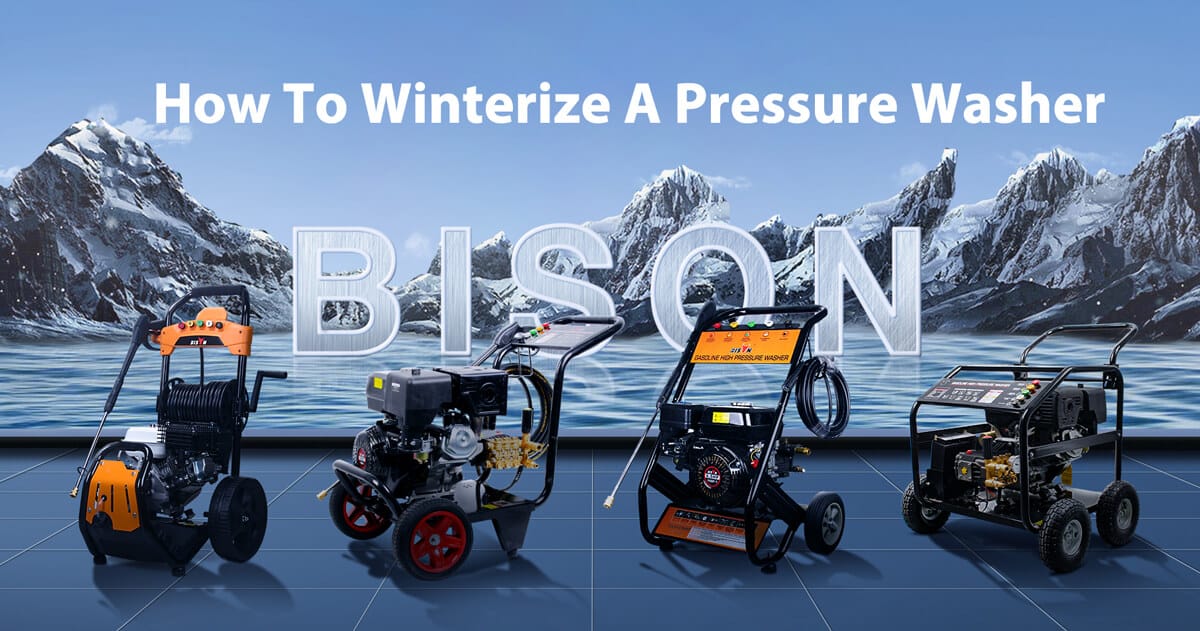
Why bother winterizing your pressure washer?
That long storage time and cold temperatures can significantly affect the internal seals, causing the pump system to dry out and crack. Even if you keep the pressure washer in an attached garage or basement where temperatures don’t drop below freezing, prolonged inactivity can cause damage.
In a fuel system, gasoline can go stale in about 30 days. Ethanol in fuel causes deterioration that causes rust, corrosion, and deposits that can clog fuel lines.
Water remaining in the machine can freeze, then expand and break the water hose. Just like water pipes in a house, the water inside your pressure washer can freeze. This expansion can cause significant damage to the internal parts of the machine, leading to costly repairs or even replacement.
However, the warranty will not cover pressure washers damaged due to lack of maintenance. That’s a waste of money and several hundred dollars for many pressure washers.
So, both gas and electric pressure washers must be winterized, and each method is slightly different, with gas taking a little longer. If you are wondering how to winterize the pressure washer pump to run correctly when you bring it out of storage in the spring, Use these step-by-step tips.
Tools required
- Empty oil pan
- Large funnel
- A medium-sized plastic food container
- Siphon pump
- Medium-slanted oil funnel
- A socket wrench whose socket matches your drain plug bolt
- Small, clear, shallow plastic container
- A two-foot hose with one side standard hose threads and no fitting on the other.
Materials required
- A bottle of plumbing antifreeze
- A bottle of fuel stabilizer
- motor oil or whatever oil your pressure washer owner’s manual recommends
Steps you must take to winterize a pressure washer
#1 Drain the reservoir completely
The freeze/thaw cycles during winter can cause any remaining liquid to expand and contract, potentially damaging a pump beyond repair. Do not leave any liquids or cleaning solutions in the plumbing or tank. Turn the pressure washer on for about a minute at minimum pressure and squeeze the trigger to flush any soap or water out of the supply lines.
#2 Blow out plumbing and hose lines
Drain as much liquid as you can by disconnecting the high-pressure hoses, the spray gun, and the wand assembly. To prevent components from freezing, think about flushing the system with a little amount of antifreeze before winter. You can use an air compressor to blow out any retaining fluid.
#3 Clean
To avoid rust and maintain the new appearance of your pump system and housing, wipe away all visible dust, debris, and filth from all exterior surfaces and nooks using a moist cloth. Remove the pump filters and clean any particles from the filter bowl or strainer. Make sure there is no residue on the metal mesh screen. Disassemble the nozzles and clean the orifice, removing any deposits to prevent corrosion.
#4 Disconnect the battery
If your pump is a electric start system, disconnect it to reduce the chance of completely draining the battery.
#5 Take extra steps for gas-powered pumps
Drain all of the gasoline if your pump uses a fuel system to function. Alternatively, a fuel stabilizer must be added to the fuel tank to ensure that gasoline does not clog the fuel lines during storage. Add stabilizer according to manufacturer’s instructions. Circulate the stabilizer throughout the fuel system by running the engine for two minutes , then shut it off.
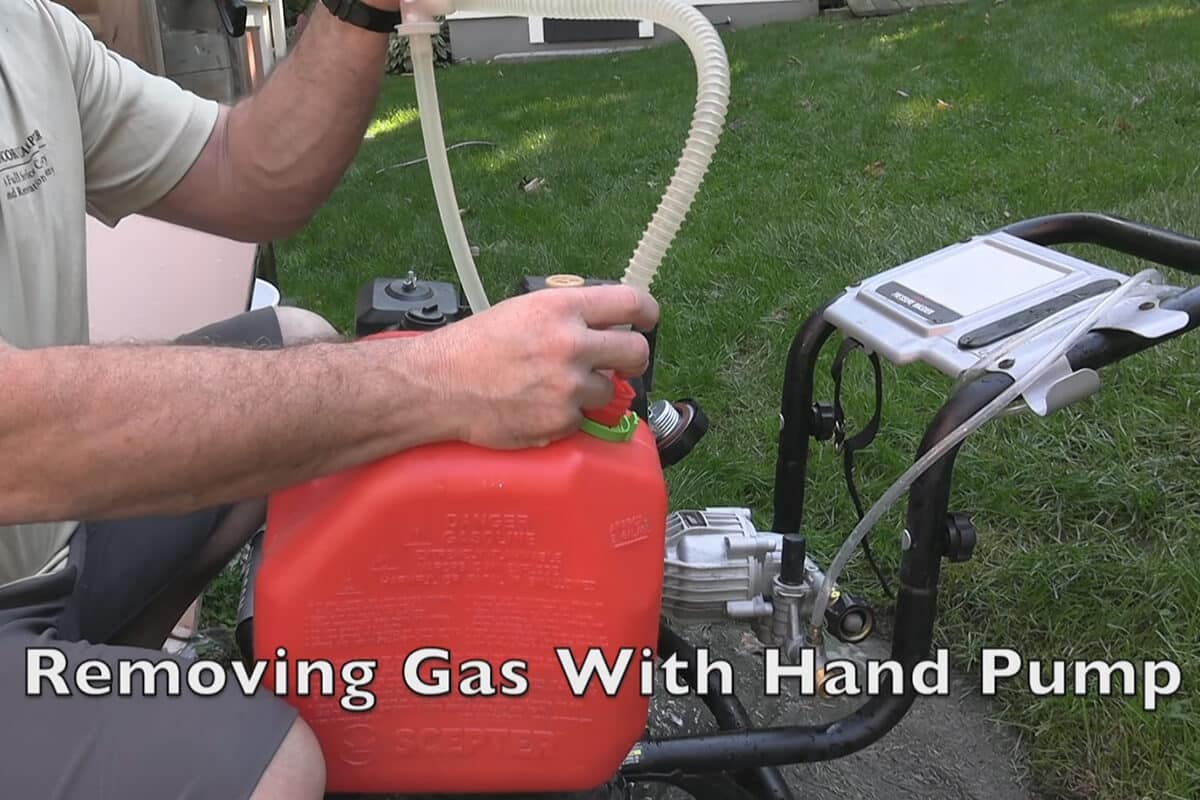
#6 Add pump saver to the pump
You can also add the pump saver. Pump saver prevents moisture from building up in the pump, preventing it from freezing. It also allows for easier starting after storage and prevents mineral deposits from developing.
Attach a pump saver to your pump through the garden hose inlet to fill the chamber. Leave it there all winter and take it out in the spring.
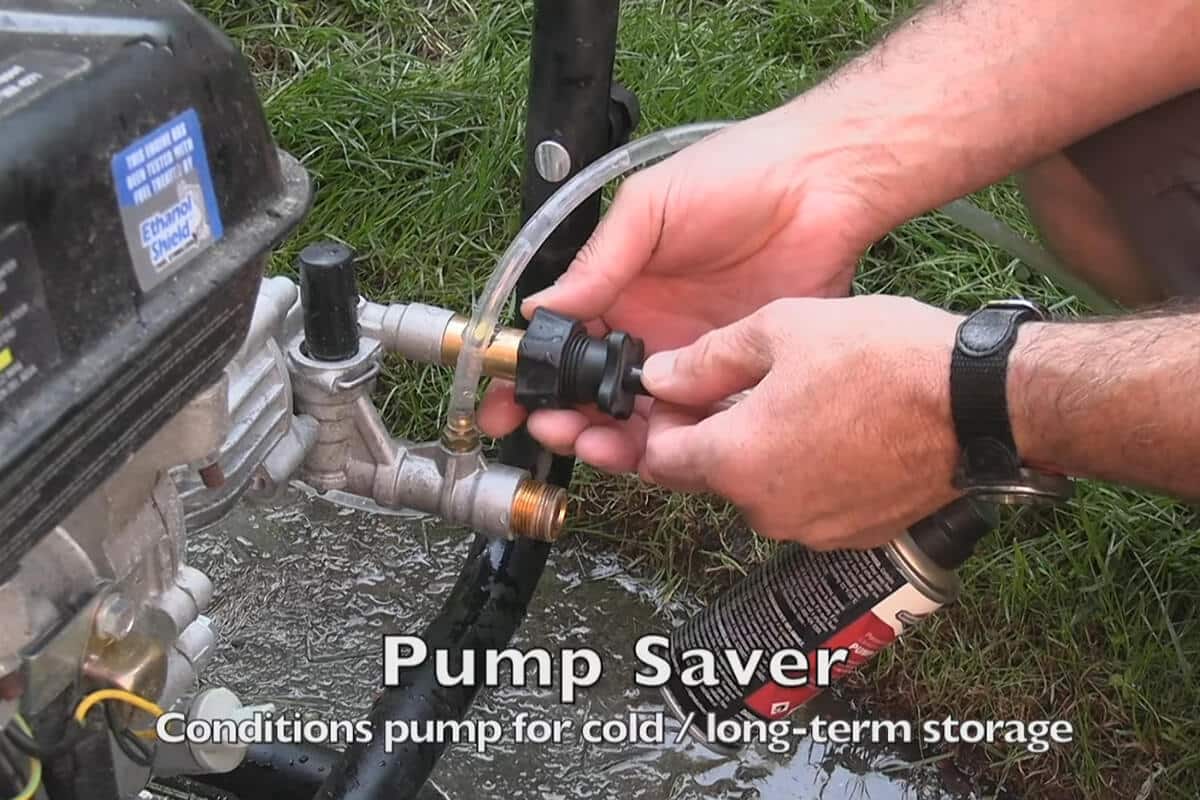
#7 Store in a dry place
Storing your pressure washer in a dry & clean location helps reduce potential corrosion or damage from the elements. Consider using it to prevent dust from settling. Ideally, store your pump equipment in a place that won’t freeze.
#8) Remember the cover!
Storage covers guard your pressure washer from dust, moisture bugs, spider webs, rodents, and rust. If you must put your pressure washer outside for any reason, you need a cover to protect it from the sun and rain.
Covers made of fabric (often canvas or polyester) with a water-repellent coating such as polyethylene allow them to breathe while protecting against moisture damage. They can be water-repelling, water-resistant, or waterproof. Of course, if you’re storing it outside, the more waterproof the cover, the better.
If you don’t have a cover, do you still remember the box of the BISON pressure washer? There are moisture-proof plastic bags and foam boxes inside. They can also help winterize your pressure washer.
As for the electric pressure washer, since it uses an electric motor instead of a gasoline engine, you only need to set up the pump system for storage.
In conclusion
Winterizing your pressure washer is a straightforward yet invaluable task that can greatly extend the lifespan of your machine. By following the simple steps outlined above and utilizing pressure washer antifreeze, you can effectively shield your equipment from the harmful effects of freezing temperatures. This not only safeguards your investment but also ensures that your pressure washer is primed and ready for use when warmer weather returns.
Remember, The best way to ensure you store and maintain your pump equipment properly is to check with your pressure washer manufacturer. BISON is here to help you navigate through this process and ensure your pressure washer is ready to face any season.
FAQs about winterizing pressure washer
What are the dangers of cold weather to your hoses?
Cold weather can affect the reliability of pressure washer hoses. Inexpensive hoses can harden and crack when exposed to freezing temperatures, resulting in leaks and pressure loss. To ensure pressure washer hoses remain reliable in cold weather, it is essential to invest in high-quality hoses with a cold weather rating.
Cold weather-rated hoses use a combination of materials that provide superior flexibility and durability, even when temperatures drop below freezing. These are made from a durable polymer material designed to resist abrasion and kinking in freezing conditions.
Most Popular Posts
QUESTIONS?
CONTACT US TODAY.
buy?
Related Posts

difference between commercial and industrial pressure washers
This article compares the key differences between commercial and industrial pressure washers to help you choose the best option for your unique needs.
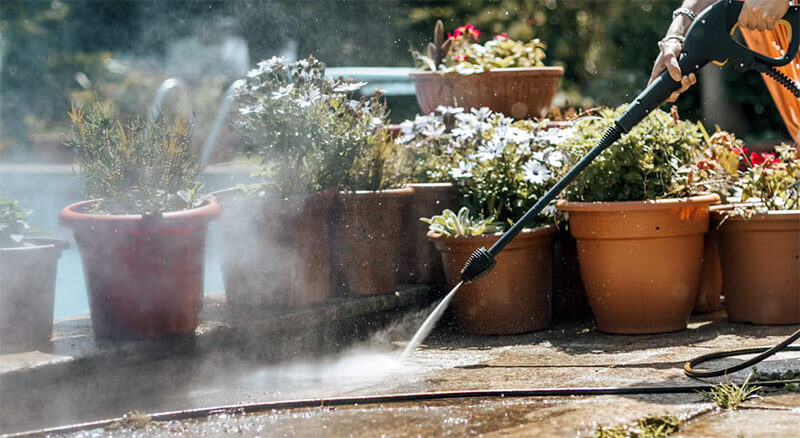
How to clean your garden patio using a pressure washer
This guide by BISON will walk you through each step to clean your garden patio with a pressure washer.

use pressure washer to clean gutters
BISON will explore whether using a pressure washer to clean your gutters is effective, safe, and practical.
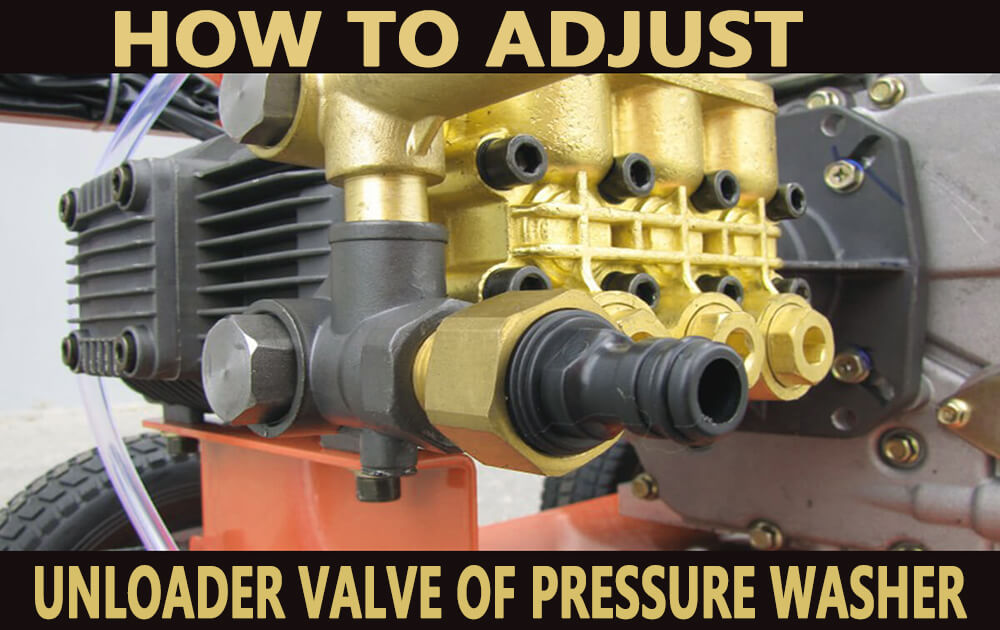
how to set the unloader valve of pressure washer
This blog is designed to guide you through the process of setting unloader valve on pressure washer.
Related Products
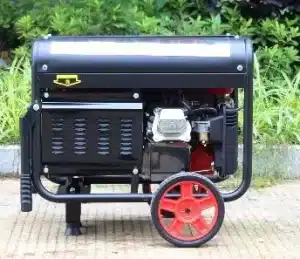
portable generators: backup power at a lower cost
PRODUCT DESCRIPTION BISON portable diesel generators are lightweight and easy to move, making them ideal
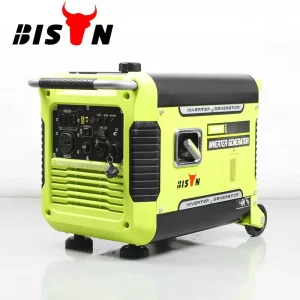
silent gasoline inverter generator for camping
Enjoy a quiet and powerful source of electricity while camping with the BISON BS-Q3000i Silent
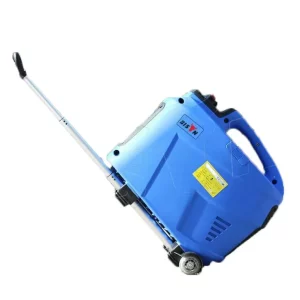
3000 watt inverter generator
Product Information BISON, a leading inverter generator supplier in China, proudly presents the BS3600. 3000
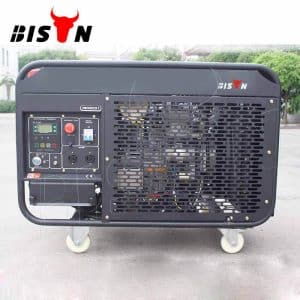
big power diesel electric generator
BISON BS9500DCE is a commercial-grade diesel electric generator that delivers big power when you need
.png)
-qbpqbzxxvtguiuwezisu6wo6j1i29b4m1el1ir1u8o.png)

